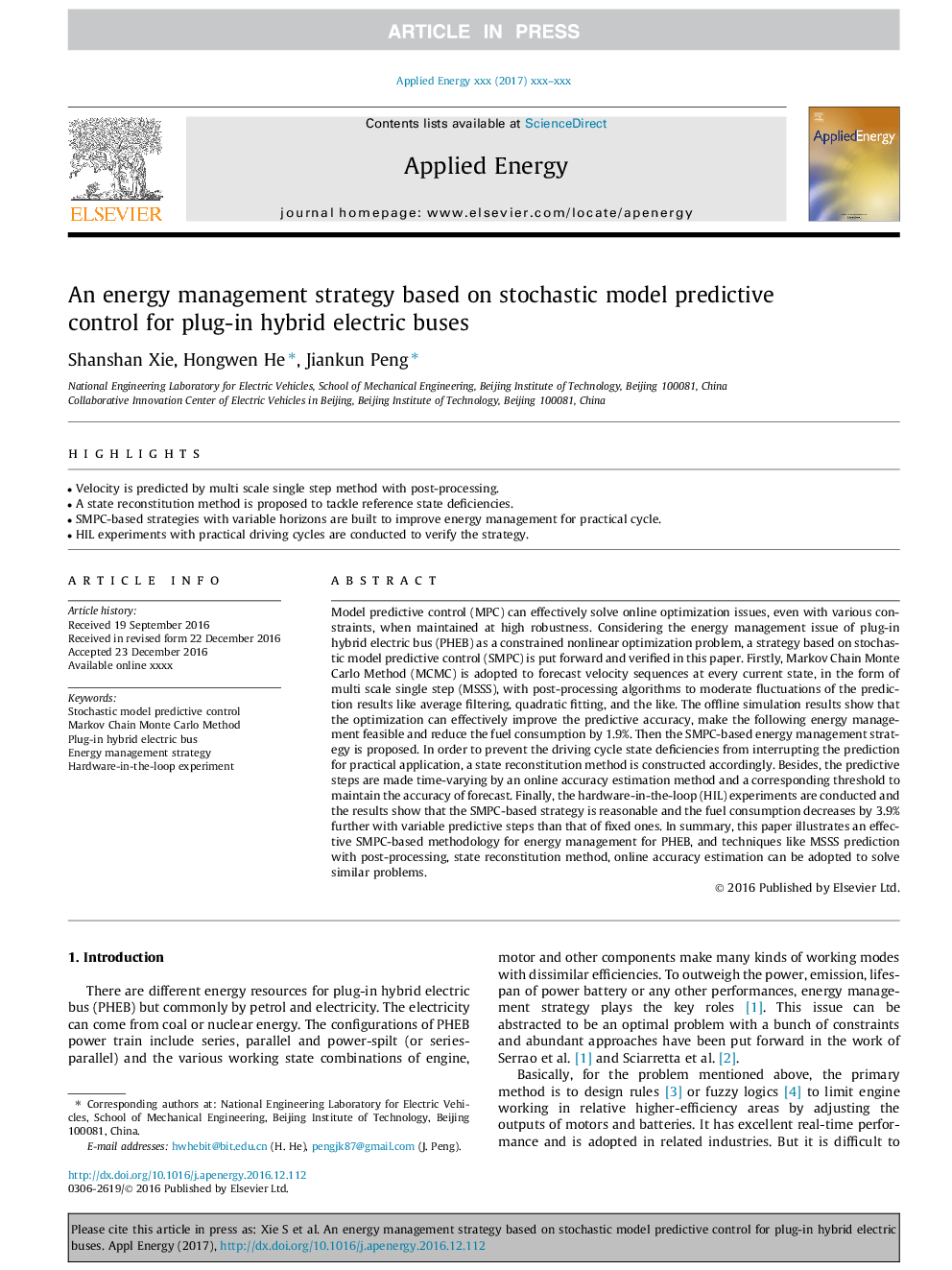ترجمه فارسی عنوان مقاله
یک استراتژی مدیریت انرژی مبتنی بر مدل پیش بینی کنترل تصادفی برای اتوبوس های هیبریدی پلاگین
عنوان انگلیسی
An energy management strategy based on stochastic model predictive control for plug-in hybrid electric buses
| کد مقاله | سال انتشار | تعداد صفحات مقاله انگلیسی |
|---|---|---|
| 136111 | 2017 | 10 صفحه PDF |
منبع

Publisher : Elsevier - Science Direct (الزویر - ساینس دایرکت)
Journal : Applied Energy, Volume 196, 15 June 2017, Pages 279-288
ترجمه کلمات کلیدی
کنترل پیش بینی کننده مدل تصادفی، روش مونت کارلو زنجیره مارکوف، اتوبوس برق هیبریدی پلاگین، استراتژی مدیریت انرژی، آزمایش سخت افزار در حلقه،
کلمات کلیدی انگلیسی
Stochastic model predictive control; Markov Chain Monte Carlo Method; Plug-in hybrid electric bus; Energy management strategy; Hardware-in-the-loop experiment;

